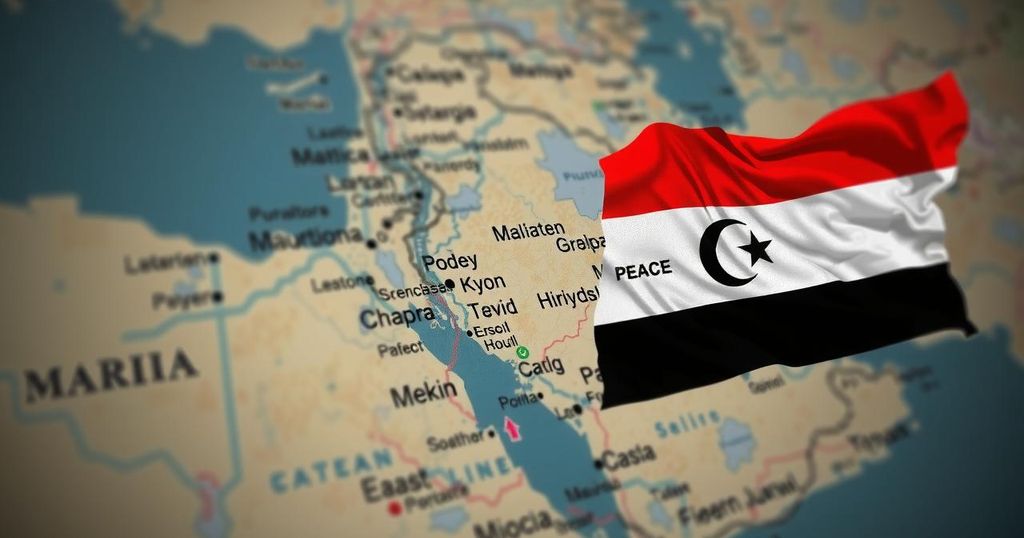Former President Donald Trump, in an exclusive interview with Al Arabiya, articulated his vision for Middle Eastern peace, focusing on expanding the Abraham Accords. He expressed confidence in resolving the Israel-Hamas conflict and emphasized the importance of US-Saudi relations and a strong stance against Iran, alongside his collaboration with Israeli Prime Minister Benjamin Netanyahu.
In a recent interview with Nadia Bilbassy-Charters, Al Arabiya’s Washington Bureau Chief, former President Donald Trump has articulated his vision for fostering peace in the Middle East, particularly in light of the ongoing conflicts involving Israel, Hamas, and Hezbollah. Trump conveyed his belief that resolving these longstanding conflicts is achievable should he be re-elected. He expressed ambition to build upon the Abraham Accords, which aimed to normalize relations between Israel and several Arab nations, suggesting that such accords could be expanded to include more countries in the region. Additionally, Trump reflected on the importance of US-Saudi relations, emphasizing the leadership role of Saudi Arabia in promoting stability and progress in the Middle East. He commented on the delicate balance of relations with Iran, hinting at a strong stance that would prioritize US interests in the region. Furthermore, Trump highlighted his collaborative relationship with Israeli Prime Minister Benjamin Netanyahu, suggesting that a continued partnership would enhance efforts toward peace. Overall, Trump’s proposals not only indicate a commitment to diplomatic engagement but also outline a strategy to address continuing tensions in the Middle East, positioning his administration as a potential mediator that seeks to expand cooperation against a backdrop of historical challenges.
The Abraham Accords, which were established during Trump’s presidency, represented a significant shift in Middle Eastern diplomacy. They facilitated normalization agreements between Israel and several Arab nations, including the United Arab Emirates and Bahrain, marking a pivotal moment in the region’s geopolitical landscape. The ongoing conflicts with groups such as Hamas in Gaza and Hezbollah in Lebanon continue to complicate peace efforts, necessitating a nuanced approach to diplomacy. US-Saudi relations have historically been a cornerstone of American foreign policy in the Middle East; Saudi Arabia’s influence is crucial for regional stability. Trump’s views on Iran reflect long-standing tensions over its nuclear program and regional activities, which are key issues impacting Middle Eastern politics. His rapport with Netanyahu is also critical, as Israel plays a central role in the region’s security framework. This context is essential to understanding the proposed strategies and potential implications of Trump’s insights regarding future progress in Middle Eastern peace initiatives.
In conclusion, Donald Trump’s perspective on Middle Eastern peace emphasizes the potential for success through expanded diplomatic relations and existing frameworks like the Abraham Accords. His focus on US-Saudi relations, the complexities surrounding Iran, and his collaboration with Israel signal a concerted effort to navigate and mitigate ongoing conflicts. Should he return to office, these strategies could play a pivotal role in reshaping the landscape of Middle Eastern diplomacy. Trump’s assertions highlight an optimistic outlook for conflict resolution in a historically volatile region, advocating for increased dialogue and cooperation among nations.
Original Source: english.alarabiya.net






